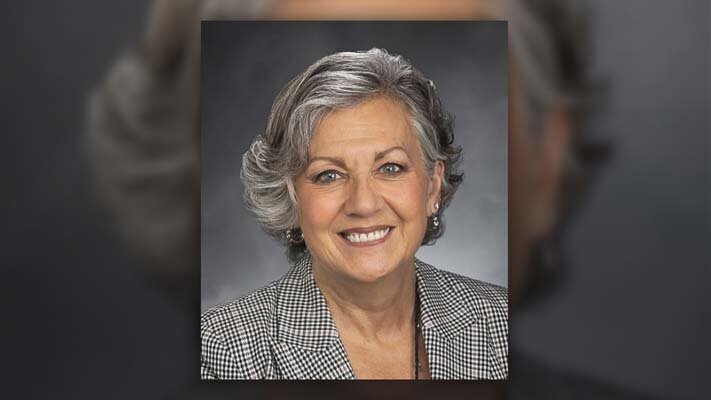
Senate budget leader is keeping an eye on a growth projection that is noticeably lower than any time outside of the Great Recession earlier this century
VANCOUVER — While the state revenue forecast adopted today keeps the government’s revenue picture comfortably on the plus side, Sen. Lynda Wilson is keeping an eye on a growth projection that is noticeably lower than any time outside of the Great Recession earlier this century.
Wilson, R-Vancouver, is Senate Republican budget leader and chair of the state Economic and Revenue Forecast Council, which met today to adopt the third of the state’s quarterly revenue forecasts for 2023. It adjusts state government’s four-year budget outlook upward by $1.1 billion, with $663 million of that for the 2023-25 biennium and $437 million for the following two-year budget cycle.
Following the meeting she offered this assessment:
“The signals in this forecast are mixed. While consumer spending in our state has been resilient, and personal income is up, and unemployment is historically low, we learned today how that’s being offset by things like rising interest rates, which are a drag not just on vehicle sales and real-estate activity but also are putting a harder hit on people working to pay down credit-card debt left from the pandemic.
“Add in rising rents and higher gas prices and the coming student-loan repayments and you have people spending more on things which don’t generate sales-tax revenue. That helps explain why revenue growth is projected at only 3% in this budget cycle, a low that hasn’t been seen in many years. Also, the capital-gains income tax is generating much more revenue than was expected early this year, and the death tax – which is double taxation that shouldn’t happen – produced $138 million more than anticipated in the June forecast. While government can spend those tax dollars like any others, no one should forget they aren’t a product of normal economic activity and are not as predictable.
“As a budget leader I’m inclined to take a wait-and-see attitude. There’s one more forecast before the next legislative session, and it will tell us much more about opportunities in 2024 to address the affordability crisis that continues to weigh heavily on so many families around our state. For Republicans, this is a top priority – while Democrats keep supporting new taxes and fees and other policies that make the cost of living higher.”
Also read:
- Camas girls basketball: Defending champions look to learn from mistakes with a tough scheduleCamas girls basketball faces growing pains as they aim to defend their state championship with a young, talented team.
- Clark County Today Sports Podcast, Dec 19, 2024: Discussing the protocol on voting for WIAA amendments, plus a look at some of the amendments that will be voted on in 2025Clark County Today Sports Podcast reviews Camas and Seton Catholic football, WIAA amendments, and winter sports.
- Biden Energy Dept. deals another blow to natural gas supportersThe Department of Energy’s new rules and a report on LNG exports have sparked debates among natural gas supporters and environmental advocates.
- Opinion: Courts blocking the Kroger-Albertson merger won’t stop consumers from making choicesPaul Guppy of Washington Policy Center critiques judicial rulings that block the Kroger-Albertsons merger, citing changing consumer trends and potential job losses.
- Pac Coast Wrestling to return to Clark County Event Center Dec. 27-28The Pac Coast Wrestling Championships, featuring over 100 teams, return to the Clark County Event Center Dec. 27-28 for two days of thrilling competition.
- Mountain View now runs Clark County’s high school basketball holiday tournamentThe Mountain View Holiday Invite will host eight boys basketball teams, including five from Clark County, from Dec. 26-28 in a showcase of local talent.
- GoFundMe spotlight: Fundraiser for four injured in food truck explosionA fundraiser has been launched to support four individuals injured in the 4 Caminos food truck explosion in Vancouver, Washington.











